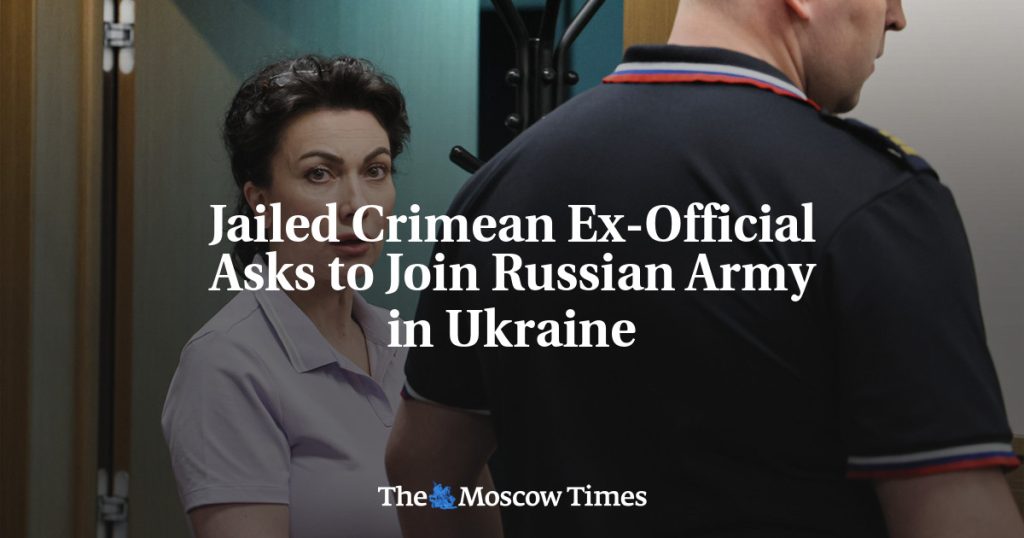A jailed ex-minister in annexed Crimea, Vera Novoselskaya, has expressed interest in joining the Russian military to be deployed to Ukraine. Novoselskaya, who was sentenced to 10 years in prison for accepting bribes, made the request during a visit by the Russian Public Monitoring Commission to the Moscow prison where she is currently held. The PMC member, Arslan Khasavov, revealed that Novoselskaya had applied to take part in the offensive in Ukraine, using the term “special military operation” to refer to the invasion.
In the summer of 2022, Russia began recruiting prisoners to participate in the war in Ukraine, offering pardons in exchange for serving six months on the battlefield. Initially led by the Wagner mercenary group, the recruitment efforts were taken over by the Russian Defense Ministry in early 2023. However, reports in early 2024 suggested that the practice of presidential pardons for prisoners participating in the war has been gradually phased out in favor of conditional release for the duration of the conflict in Ukraine.
Russian lawmakers recently passed legislation allowing suspected or convicted criminals to join the military and fight in Ukraine. This move signifies a shifting approach towards utilizing individuals with criminal backgrounds in military operations. The decision to involve individuals like Novoselskaya, who is serving a prison sentence, in the conflict raises ethical concerns about the use of prisoners as combatants in a war. Novoselskaya’s desire to join the Russian military highlights the complexities and moral implications of using convicted individuals in military activities.
The involvement of individuals with criminal records in the war in Ukraine raises questions about the legal and ethical implications of utilizing prisoners as combatants. The decision to recruit prisoners for military service in exchange for pardons or conditional release reflects a broader strategy by Russia to engage various segments of the population in the conflict. The legislation passed by Russian lawmakers allowing convicted criminals to participate in military operations suggests a willingness to exploit all available resources, including those within the prison system, to further Russia’s military objectives in Ukraine.
The use of individuals with criminal backgrounds in military operations highlights the complexities of modern warfare and the changing nature of conflict in the 21st century. The recruitment of prisoners for military service raises concerns about the moral and legal implications of involving individuals with criminal records in armed conflicts. As Russia continues its military intervention in Ukraine, the involvement of convicted individuals like Novoselskaya in the conflict raises questions about the boundaries of acceptable behavior in wartime and the ethical considerations of utilizing prisoners as combatants.
In conclusion, the case of Vera Novoselskaya, a jailed ex-minister in Crimea seeking to join the Russian military for deployment to Ukraine, sheds light on the broader issues surrounding the use of individuals with criminal backgrounds in military operations. Russia’s recruitment of prisoners for the war in Ukraine and the recent legislation allowing convicted criminals to join the military signify a shift in strategy towards involving a wider range of individuals in the conflict. The ethical and legal implications of using prisoners as combatants in armed conflicts raise important questions about the boundaries of acceptable behavior in wartime and the morality of exploiting convicted individuals for military objectives.


